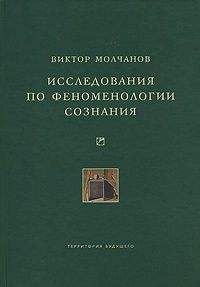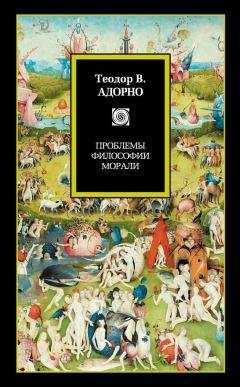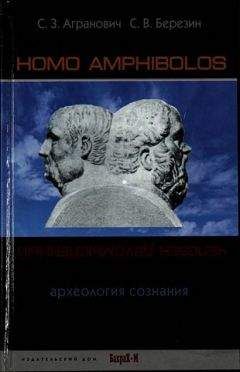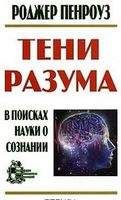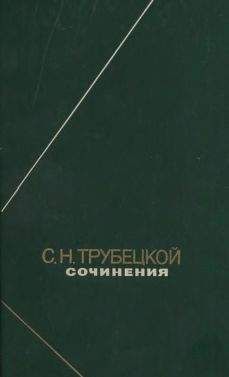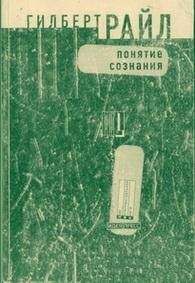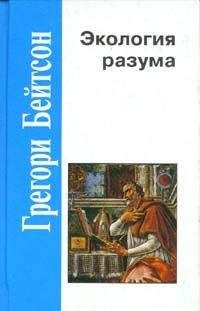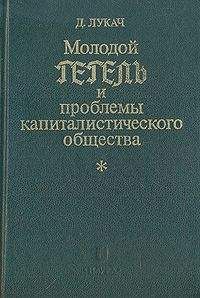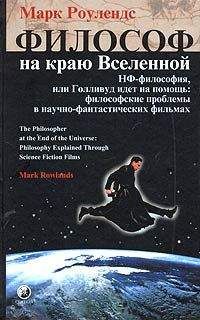Вадим Васильев - Трудная проблема сознания
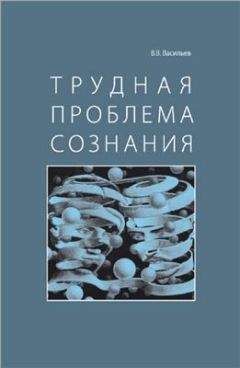
Скачивание начинается... Если скачивание не началось автоматически, пожалуйста нажмите на эту ссылку.
Жалоба
Напишите нам, и мы в срочном порядке примем меры.
Описание книги "Трудная проблема сознания"
Описание и краткое содержание "Трудная проблема сознания" читать бесплатно онлайн.
Книга посвящена обсуждению "трудной проблемы сознания" — вопроса о том, почему функционирование человеческого мозга сопровождается субъективным опытом. Рассматриваются истоки этой проблемы, впервые в четком виде сформулированной австралийским философом Д.Чалмерсом в начале 90-х гг. XX века. Анализируется ее отношение к проблеме сознание — тело и проблеме ментальной каузальности. На материале сочинений Дж. Серла, Д.Деннета, Д.Чалмерса и многих других аналитических философов критически оцениваются различные подходы к загадке сознания. В заключительной части книги автор предлагает собственное видение "трудной проблемы", позволяющее, с его точки зрения, избежать концептуальных тупиков и отдать должное интуициям здравого смысла
King P. Why isn't the mind‑body problem medieval // Forming the Mind: Essays on the Internal Senses and the Mind/Body Problem from Avicenna to the Medical Enlightenment, ed. by H. Lagerlund. Dordrecht, 2007. P. 187–206.
Kirk R. Sentience and behaviour // Mind 83 (1974). P. 43–60.
Kirk R. "The best set of tools"? Dennett's metaphors and the mind‑body problem // The Philosophical Quarterly 43:172 (1993). P. 335–343.
Kirk R. Zombies and Consciousness. N. Y., 2005.
Kitcher P. Kant's Transcendental Psychology. N. Y., 1990.
Koch С The Quest for Consciousness: A Neurobiological Approach. Englewood, 2004.
Koksvik O. In Defence of Interactionism. Master thesis. TS 2006.
Kriegel U., Wllliford K. (eds) Self‑Representational Approaches to Consciousness. Cambridge MA, 2006.
Kripke S. Naming and Necessity. Cambridge MA, 1980.
Kripke S. Wittgenstein on Rules and Private Language. Cambridge MA, 1982.
Kuczynski J. — M. M. A quasi‑materialist, quasi‑dualist solution to the mind- body problem // Criterion 109 (2004). P. 81–135.
Lacks J. Epiphenomenalism and the notion of cause // The Journal of Philosophy 60 (1963). P. 141–146.
Leopold D. A., Logothetis N. K. Activity changes in early visual cortex reflects monkeys' percepts during binocular rivalry // Nature 379 (1996). P. 549–553.
Levine J. Purple Haze: The Puzzle of Consciousness. N. Y., 2004 (2001).
Levine J. Anti‑materialist arguments and influential replies // The Blackwell Companion to Consciousness, ed. by M. Velmans and S. Schneider. Maiden, 2007. P. 371–380
Lewis С. I. Mind and the World‑Order: Outline of a Theory of Knowledge. N. Y., 1929.
Lewis D. An argument for the identity theory // Journal of Philosophy 63: 1 (1966). P. 17–25.
Lewis D. Philosophical Papers. V. II. N. Y., 1986.
Lewis D. Mad pain and Martian pain // The Nature of Mind, ed. by D. Rosenthal. N. Y., 1991. P. 229–234.
Lewis D. What experience teaches // There's Something About Mary: Esays on Phenomenal Consciousness and Frank Jackson's Knowledge Argument, ed. by P. Ludow, Y. Nagasawa, and D. Stoljar. Cambridge MA, 2004. P. 77–103.
Libet B. Solutions to the hard problem of consciousness // Explaining Consciousness — The "Hard Problem", ed. by J. Shear. Cambridge MA, 1997. P. 301303.
Libet B. Mind Time: The Temporal Factor in Consciousness. Cambridge MA,
2004.
Loar B. Phenomenal states // The Nature of Consciousness: Philosophical Debates, ed, by N. Block, O. Flanagan, and G. Guzeldere. Cambridge MA, 1997. P. 597–616.
Lowe E. J. There are no easy problems of consciousness // Explaining Consciousness — The "Hard Problem", ed. by J. Shear. Cambridge MA, 1997. P. 117123.
Lowe E. J. Causal closure principles and emergentism // Philosophy 75: 4 (2000). P. 571–585.
Malcolm N. Knowledge of other minds // The Nature of Mind, ed. by D. Rosenthal. N. Y., 1991. P. 92–97.
Marcus E. Mental causation: Unnaturalized but not unnatural // Philosophy and Phenomenological Research 61:1 (2001). P. 57–83.
Marras A. Methodological and ontological aspects of the mental causation problem // Physicalism and Mental Causation: The Metaphysics of Mind and Action, ed. by S. Walter and H. — D. Heckmann. Exeter, 2003. P. 243–264.
Marsoobian А. Т., Ryder J. (eds) The Blackwell Guide to American Philosophy. Maiden, 2004.
McGinn С The Problem of Consciousness: Essays Towards a Resolution. Oxford, 1993(1991).
McGinn C. Problems in Philosophy: The Limits of Inquiry. Maiden, 1993. McGinn C. Consciousness evaded: Comments on Dennett // Philosophical Perspectives 9 (1995). P. 241–249.
McGinn C. Character of Mind: An Introduction to the Philosophy of Mind. New ed. N. Y., 1996.
McGinn C. Can we solve the mind‑body problem? // The Nature of Consciousness: Philosophical Debates, ed. by N. Block, O. Flanagan, and G. Guzeldere. Cambridge MA, 1997. P. 529–542.
McGinn C. The Mysterious Flame: Conscious Minds in a Material World. N. Y., 1999.
McGinn C. The Making of a Philosopher: My Journey through Twentieth- Century Philosophy. N. Y., 2003 (2002).
McGinn C. Consciousness and Its Objects. N. Y., 2004.
McGinn C. Hard questions // Strawson G. et al. Consciousness and Its Place in Nature: Does Physicalism Entail Panpsychism? Charlottesville, 2006. P. 90–99.
McKinsey M. Refutation of qualia‑physicalism // Situating Semantics: Essays on the Philosophy of John Perry, ed. by M. O'Rourke and Corev Washington. Cambridge MA, 2007. P. 469–498.
McLaughlin B. P. Type epiphenomenalism, type dualism, and the causal priority of the physical // Philosophical Perspectives 3 (1989). P. 109–135.
Meixner U. New perspectives for a dualistic conception of mental causation // Journal of Consciousness Studies 15: 1 (2008). P. 17–38.
Melloni L. et al. Synchronization of neural activity across cortical areas correlates with conscious perception // The Journal of Neuroscience 27: 11 (2007). P. 2858–2865.
Menzies P. Counterfactual theories of causation: Entry in the Stanford Encyclopedia of Philosophy, 2001. http://plato. Stanford, edu/entries/causationcounterf actual.
Menzies P. The causal efficacy of mental states // Physicalism and Mental Causation: The Metaphysics of Mind and Action, ed. by S. Walter and H. — D. Heckmann. Exeter, 2003. P. 195–223.
Meyer M. The Present status of the problem of the relation between mind and body // The Journal of Philosophy, Psychology and Scientific Methods 9: 14(1912). P. 365–371.
Mills E. O. Giving up on the hard problem of consciousness // Explaining Consciousness — The "Hard Problem", ed. by J. Shear. Cambridge MA, 1997. P. 109115.
Mohrhoff U. Interactionism, energy conservation, and the violation of physical laws // Physics Essays 10: 4 (1997). P. 651–665.
Monk R. Ludwig Wittgenstein: The Duty of Genius. N. Y., 1991 (1990). Montero B. Varieties of causal closure // Physicalism and Mental Causation: The Metaphysics of Mind and Action, ed. by S. Walter and H. — D. Heckmann. Exeter,
2003. P. 173–187.
Montero B. What does the conservation of energy have to do with physicalism? // Dialectica 60: 4 (2006). P. 383–396.
Moore G. E. Some Main Problems of Philosophy. N. Y., 1962 (1953).
Moural J. The Chinese Room Argument // John Searle, ed. by B. Smith. Cambridge, 2003. P. 214–260.
Muijnck W. Dependencies, Connections, and Other Relations: A Theory of Mental Causation. Dordrecht, 2003.
Muijnck W. Two types of mental causation // Philosophical Explorations, 7:1 (2004). P. 21–35.
Nagel T. Brain bisection and the unity of consciousness // Synthese 22(1971). P. 396–413.
Nagel T. What is it like to be a bat? // Philosophical Review 83: 4 (1974). P. 435–450.
Nagel T. The View From Nowhere. N. Y., 1986.
Nagel T. Other Minds: Critical Essays. 1969–1994. N. Y., 1995.
Papineau D. Thinking about Consciousness. N. Y., 2004 (2002).
Parfit D. Personal identity // Personal Identity, ed. by J. Perry. Berkeley, 1975. P. 199–223.
26
5Parfit D. Reasons and Persons. N. Y., 1986 (1984).
Passingham R. E., Lau H. C, Free choice and the human brain // Does Consciousness Cause Behavior? Ed. by S. Pocketi, W. P. Banks and S. Gallagher. Cambridge MA, 2006. P. 53–72.
Patten M., Staudacher A., Walter S. Epiphenomenalism: Dead end or way out? // Journal of Consciousness Studies 13: 1–2 (2006). P. 7–19.
Pauen M. Was ist der Mensch? Die Entdeckung der Natur des Geistes. Mtinchen, 2007.
Pinker S. How the Mind Works. L., 1999(1997).
Pinker S. The Blank Slate: The Modern Denial of Human Nature. N. Y.,2002. Pinker S. So how does the mind work? // Mind & Language 20:1 (2005). P. 124.
Pinker S- The Stuff of Thought: Language as a Window into Human Nature. N. Y., 2007.
Place U. T. Is consciousness a brain process? // British Journal of Psychology 47 (1956). P. 44–50.
Place U. T. Token— versus type‑identity physicalism // Antropology and Philosophy 3: 2 (1999). P. 21–31.
Place U. T. Identity theories. TS 1999.
Place U. T. Identifying the Mind: Selected Papers of U. T. Place. N. Y., 2004. Polger T. Rethinking the evolution of consciousness // The Blackwell Companion to Consciousness, ed. by M, Velmans and S- Schneider. Maiden, 2007. P. 72–86.
Popper K., Eccles J. The Self and Its Brain: An Agrument for Interactionism. В., 1977.
Pratt J. B. The present status of the mind‑body problem // The Philosophical Review 45: 2 (1936). P. 144–166.
Preston A. Prolegomena to any future history of analytic philosophy // Metaphilosophy 35: 4 (2004).
Preston J., Bishop M. (eds) Views into the Chinese Room: New Essays on Searle and Artificial Intelligence. N. Y., 2002.
Priestley J. Disquisitions relating to Matter and Spirit. L., 1777.
Prinz J- The intermediate level theory of consciousness // The Blackwell Companion to Consciousness, ed. by M. Velmans and S. Schneider. Maiden, 2007. P. 247–260.
Putnam H. Minds and machines // Dimensions of Mind, ed. by S. Hook. N. Y., 1960. P. 148–180.
Putnam H. Psychological predicates // Art, Mind, and Religion, ed. by W. Capitan and D. Merrill. Pittsburgh, 1967. P. 37–48.
Putnam H. Words & Life. Cambridge MA, 1994.
Quine W. V. The Ways of Paradox. N. Y, 1966.
Quine W. V. Theories and Things. Cambridge MA, 1981.
Quine W. V. Pursuit of Truth. Cambridge MA, 1990.
Quine W, V. States of mind // The Nature of Mind, ed. by D. Rosenthal. N. Y., 1991. P. 287–288.
Ramachandran V. S., Hirstein W. Three laws of qualia: What neurology tells us about the biological functions of consciousness, qualia and the self // Journal of Consciousness Studies 4: 4–5 (1998). P. 429–457.
266
Ramachandran V. S. Mirror neurons and imitation learning as the driving force behind "the great leap forward" in human evolution // Edge (2000).
Ramachandran V. S. A Brief Tour of Human Consciousness: From Impostor Poodles to Purple Numbers. N. Y., 2004.
Reid T. The Works of Thomas Reid. 7 ed. Edinburgh, 1872.
Richardson- R. С The "scandal" of Cartesian interactionism // Mind 91(1982). P. 20–37.
Rieger J. W., Schichtanz S. "Wenn Du denkst, dass ich denke, dass Du denkst…" — Anmerkungen zur interdisziplinaren Auseinauderset‑zung uber das Bewusstsein // Bewusstseiu. Philosophie, Neurowissen‑schaften, Ethik, hrsg. v. С S. Hermann, M. Pauen, J. W. Rieger und S. Schicktanz. Paderborn, 2005. S. 22–52.
Rivas Т., Dongen H. v. Exit epiphenomenalism: The demolition of a refuge // JNLRMI 2:1 (2003).
Robb D., Hell J. Mental causation: Entry in the Stanford Encyclopedia of Philosophy, 2003. http://plato.stanford.edu/entries/meiital‑causation.
Robinson D. N. Consciousness and Mental Life. N. Y., 2008.
Robinson H. Dennett on the Knowledge argument // There's Something About Mary, ed. by P. Ludow, Y. Nagasawa, and D. Stoljar. Cambridge MA, 2004. P. 69–73.
Robinson W. S. The hardness of the hard problem // Explaining Consciousness
— The "Hard Problem", ed. by J. Shear. Cambridge MA, 1997. P. 149–161.
Robinson W. S. Epiphenomenalism: Entry in the Stanford Encyclopedia of Philosophy, 2007. http://plato.stanford.edu/entries/ epiphenomenalism.
Robinson W. S. Evolution and epiphenomenalism // Journal of Consciousness Studies 14: 11 (2007). P. 27–42.
Rosenberg G. H. Rethinking nature: A hard problem within the hard problem // Explaining Consciousness — The "Hard Problem", ed. by J. Shear. Cambridge MA, 1997. P. 287–300.
Rosenberg G. H. A Place for Consciousness: Probing the Deep Structure of the Natural World. N. Y., 2004.
Rosenblum В., Kuttner F. Quantum Enigma: Physics Encounters Consciousness. N. Y., 2006.
Rosenthal D. Two concepts of consciousness // The Nature of Mind, ed. by
D. Rosenthal. N. Y., 1991. P. 462–477.
Rosenthal D. M. A Theory of consciousness // The Nature of Consciousness: Philosophical Debates, ed. by N. Block, O. Flanagan, and G. Guzeldere. Cambridge MA, 1997. P. 729–753.
Rosenthal D. M. Consciousness and Mind. N. Y., 2005.
Ross J. A. Hitting on consciousness: Honderich versus McGinn // Journal of Consciousness Studies 15: 1 (2008). P. 109–128.
Rowlands M. Mysterianism // The Blackwell Companion to Consciousness, ed. by M. Velmans and S. Schneider. Maiden, 2007. P. 335–345.
Russell B. The Analysis of Matter. New ed. N. Y., 1954.
Russell B. Analogy // The Nature of Mind, ed. by D. Rosenthal. N. Y., 1991. P.
Ryle G. The Concept of Mind. Chicago, 2002 (1949).Schneider S. Daniel Dennett on the nature of consciousness // The Blackwell Companion to Consciousness, ed. by M. Velmans and S. Schneider. Maiden, 2007. P. 313–324.
Schutt H. — Р. Substanzen, Subjekte und Personen: Eine Studie zum Cartesischen Dualistnus. Heidelberg, 1990.
Searle J. R. Speech Acts: An Essay in the Philosophy of Language. Cambridge,
1969.
Searle J. R. Expression and Meaning: Studies in the Theory of Speech Acts. Cambridge, 1979.
Searle J. R. Intentionality: An Essay in the Philosophy of Mind. Cambridge,
1983.
Searle J. R. Minds, Brains and Science. Cambridge MA, 1984.
Searle J. R. Minds, Brains, and Programs // The Nature of Mind, ed. by D. Rosenthal. N. Y., 1991. P. 509–519.
Searle J. R. Response: The mind‑body problem // John Searle and His Critics, ed. by E. Lepore and R. Van Gulick. Cambridge MA, 1991. P. 141–146.
Searle J. R. The Rediscovery of the Mind. Cambridge MA, 1994 (1992).
Searle J. R. Consciousness, the brain and the connection principle: A reply // Philosophy and Phenomenological Research 55: 1 (1995). P. 217–232.
Searle J. R. The Mystery of Consciousness. L., 1998(1997).
Searle J. R. Mind, Language, and Society: Philosophy in the Real World. N. Y., 1999(1998).
Searle J, R. The future of philosophy // Philosophical Transactions: Biological Sciences 354: 1392 (1999). P. 2069–2080.
Searle J. R. Consciousness // Annual Review of Neuroscience 23 (2000). P. 557–578.
Searle J. R. Why I am not a property dualist // Journal of Consciousness Studies, 9: 12 (2002) P. 57–64.
Searle J. R. Consciousness and Language. Cambridge, 2002.
Searle J. R. Mind: A Brief Introduction. Oxford, 2004.
Searle J. R. Freedom and Neurobiology: Reflections on Free Will, Language, and Political Power. N. Y., 2007.
Searle J. R. Biological naturalism // The Blackwell Companion to Consciousness, ed. by M. Velmans and S. Schneider. Maiden, 2007. P. 325–334.
Sellars W. Empiricism and the Philosophy of Mind. Cambridge MA, 1997. Shaffer J. Mental events and the brain // The Nature of Mind, ed. by D. Rosenthal. N. Y., 1991. P. 177–180.
Shoemaker S. Functionalism and qualia // The Nature of Mind, ed. by D. Rosenthal. N. Y., 1991. P. 395–407.
Подписывайтесь на наши страницы в социальных сетях.
Будьте в курсе последних книжных новинок, комментируйте, обсуждайте. Мы ждём Вас!
Похожие книги на "Трудная проблема сознания"
Книги похожие на "Трудная проблема сознания" читать онлайн или скачать бесплатно полные версии.
Мы рекомендуем Вам зарегистрироваться либо войти на сайт под своим именем.
Отзывы о "Вадим Васильев - Трудная проблема сознания"
Отзывы читателей о книге "Трудная проблема сознания", комментарии и мнения людей о произведении.








